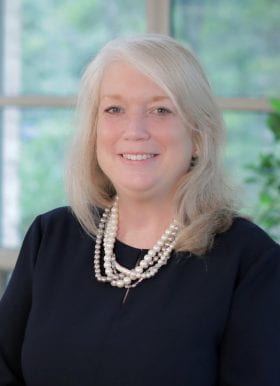The Student Sunrise project has launched a Faculty Advisory Group to counsel the project team about how to best engage and support faculty as the university transitions to Workday Student during the 2024-25 academic year.
Vice Provost of Interdisciplinary Initiatives Mary McKay, who serves on the project’s executive committee, and Danielle Bristow, change lead for the project, are co-chairs for the group. Faculty Advisory Group members represent all schools, and their nominations come from Student Sunrise Steering Committee members and school deans.

“I’m excited to have such a wonderful group of colleagues involved in this important university initiative,” McKay said. “Collectively, these faculty possess an impressive breadth and depth of knowledge about our institution as well as specific areas, like advising, that we’re rethinking as part of this project. They’ve also demonstrated a commitment to collaboration and change, which will be paramount to rethinking processes and policies and implementing our new student information system.”
Advisory group members had their first meeting April 18, 2022, to introduce themselves and learn more about their role in the Student Sunrise project.
“I’m really excited to be a part of this group,” said advisory group member Peter Kastor, a professor of history and American culture studies. “I was relatively new to the university in 2000 when Arts & Sciences started to move over to what was then a new curriculum. It was fascinating to watch a big change like that, so I’m really interested to see how this next big change will take form.”
Faculty voices are vital.
Erin Culbreth, vice provost and Student Sunrise project executive director
Over the next three years, the Faculty Advisory Group will preview select Workday Student functionality to identify faculty impacts and how to best communicate and train around those impacts.
For example, in Workday Student, prerequisites will be configured in the system and applied at the time a student registers for courses, rather than administrators manually checking eligibility while students are on a waitlist. How might the change impact faculty? Will it be perceived positively or negatively? What’s the best way to communicate with faculty about any related changes, e.g., how they’ll provide “permission of instructor”? These are the types of questions that will be brought to the group.
While the Faculty Advisory Group is not a decision-making body, members will provide feedback on issues that may need to be elevated to formal faculty governance groups, such as Faculty Senate.
Advisory group members also will have the opportunity to participate in change impact validation sessions with their schools, as well as testing and readiness workshops closer to go-live. Additionally, faculty in this group will partner with their Sunrise Steering Committee representatives to champion change within their schools.
Erin Culbreth, vice provost and executive director for the project, underscored how critical this group will be to the success of the project. “Faculty voices are vital. We’ll be counting on our Faculty Advisory Group to identify potential challenges and brainstorm ways to address those changes in a positive way that works for faculty. As we get closer to go-live, we’ll leverage their help to reach the broader faculty community with key information so that instructors and faculty are comfortable and confident using the new system and know how to get help.”